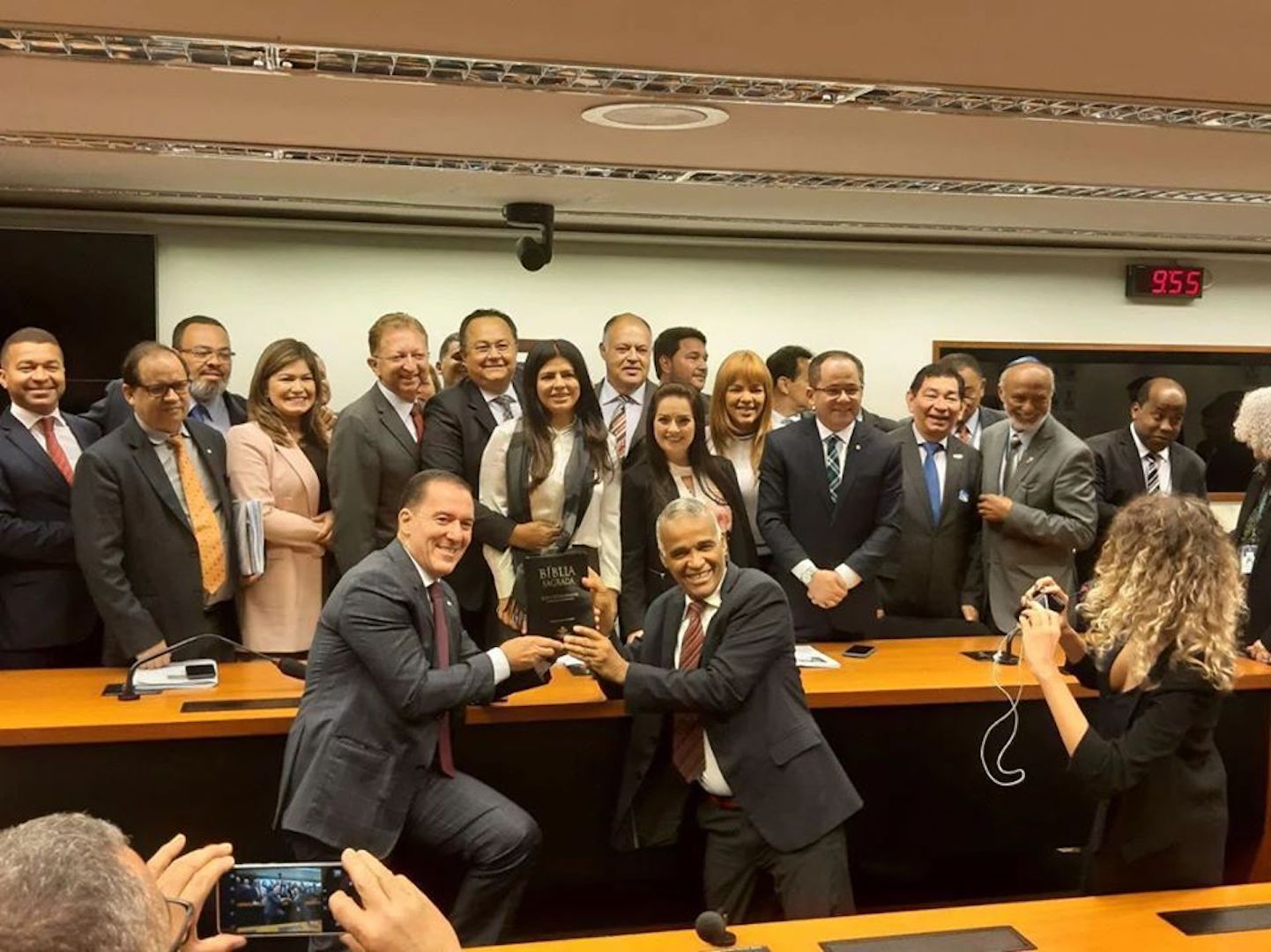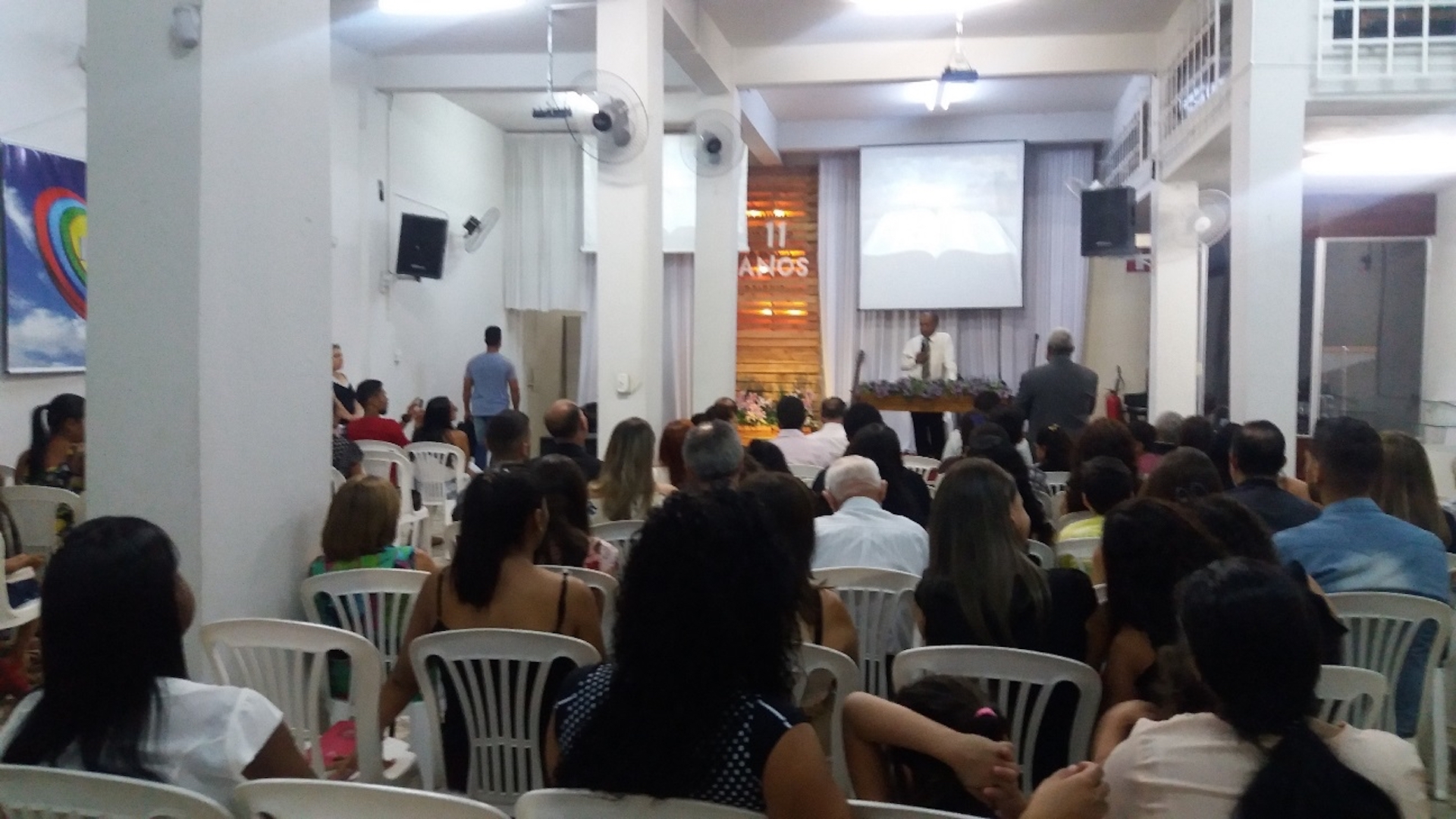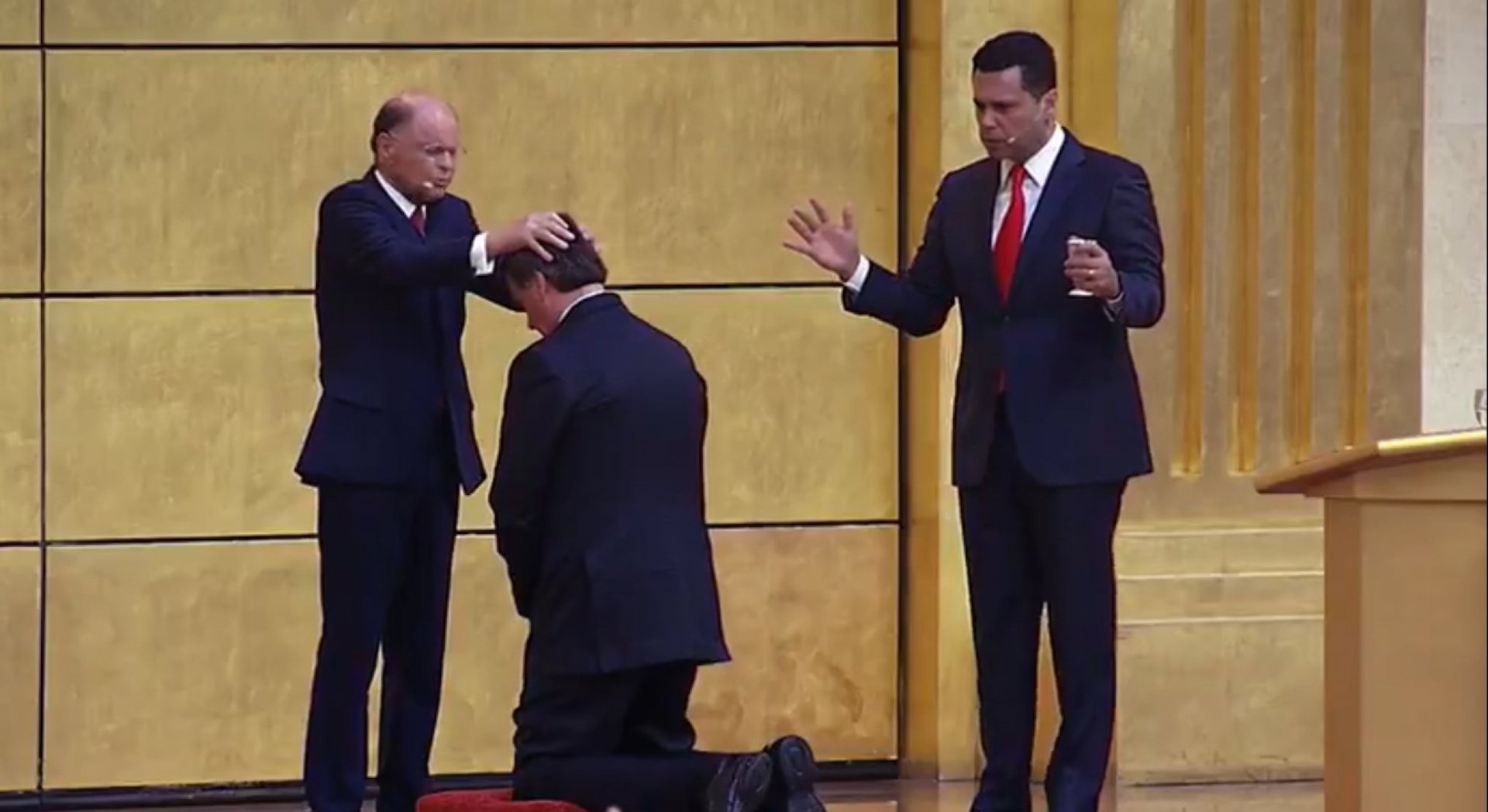SÃO PAULO, BRAZIL – Recent economic crises in Brazil have led to the expansion of the Evangelical population in the country, shows a recent study. The result has an effect on government policies, since this movement favors the selection of candidates linked to this faith.

The authors of the study claim that Brazilians negatively affected by economic crises become more susceptible to the strong pragmatic rhetoric of problem solution found in one’s faith, presented by evangelical religions.
“We find that regions more exposed to economic distress experienced a persistent rise both in Pentecostal affiliation and in the vote share of candidates connected to Pentecostal churches in national legislative elections,” says the paper “Stop Suffering! Economic Downturns and Pentecostal Surges”, released by economists Francisco Costa, Angelo Marcantonio ad Rudi Rocha.
The authors say that for each one percent drop of income by Brazilians, associated to the opening of the country’s economy which created more competition and a worst economic situation, there was approximately a two percent increase in the share of votes received by evangelical politicians.
According to the researchers, their results indicate that the expansion of Evangelism and Neo-Pentecostalism in society, triggered by economic downturns in the 1990s, was also accompanied by a shift in electoral outcomes and in legislative production towards a religious-oriented political agenda.
“Our results lend support to the view that religious conversion may lead to changes of attitudes not only towards individual religiosity but also politics, possibly with wider and long-lasting implications for society,” Rocha told The Rio Times.

Brazilian Pentecostals and Evangelicals tend to vote for candidates who share their faith, thus the growth of these conservative movements has spilled over in other dimensions of public life and institutional spaces such as the Chamber of Deputies and the Executive branches of Brazilian government.
Once elected, these more conservative politicians carried out an agenda with greater emphasis on issues that are sensitive to fundamental religious principles, such as being against abortion and LGBT+ rights.
Today in Brazil’s Congress there are at least 115 lawmakers who declare themselves to be in the Evangelical alliance, including President Jair Bolsonaro’s son, Chamber deputy Eduardo Bolsonaro.
The President has several members of his entourage who are openly fundamental Evangelicals or Neo-Pentecostal, including female pastor Damares Alves, who leads the Ministry of Women, Family and Human Rights. Weeks after taking office, Alves tweeted through her social media “It’s a new era in Brazil: Boys wear blue and girls wear pink! Girls will be princesses and boys will be princes.”
President Bolsonaro, himself, was born a Catholic but in 2016 was re-baptized in the Jordan river in Israel by an evangelical pastor.

The overlap of religious beliefs and politics, say the economists is not positive for the country.
“Our results indicate that the conversion towards more fundamentalist religious beliefs has also been reflected in terms of political representation and legislative production. We speculate that this process, in the limit, may undermine the democratic endorsement of the very individual rights which allow for different beliefs to bloom,” says the study.
Data from the last population census, conducted by the Brazilian Institute of Geography and Statistics (IBGE) in 2010, showed a 61 percent increase in the country’s evangelical population over the 10-year period (2000-2010).
In 2000, more than 26.2 million people declared themselves evangelical, representing 15.4 percent of Brazil’s population. In 2010, this number jumped to 42.3 million people, a percentage corresponding to 22.2 percent of Brazilians.
And while Evangelism and Neo-Pentecostal followers have increased in numbers, the number of Catholics in has been significant declining: in 2010, 64 percent of Brazilians professed to be Catholics, compared to 91 percent registered in 1970. By 2022, maintaining the current trend, Catholics in Brazil, once known as the largest Catholic country in the world, should represent less than half of the Brazilian population, say IBGE analysts.
The authors of the study say they found a straight correlation between the conversion of Catholics to Evangelicals and Pentecostals. According to Rocha the great majority of those who convert to Evangelism come from the Catholic Church rather than other religions.
“We did not find a significant number of people who had no religion becoming Evangelicals. These new Evangelicals were already religious” he explains, noting that the conversion tends to be permanent.
Without all the restrictions from the Vatican and the reduced number of priests in the country, evangelical temples are also easier to open and be maintained than Catholic churches. Evangelical pastors are ordained in simple ceremonies, and do not need to have years of seminary attendance before leading a group of parishioners. The IBGE estimates that 14,000 evangelical churches are opened annually in the country.
“I do not believe these people will go convert back to Catholicism if the economy improves,” adds Rocha.

